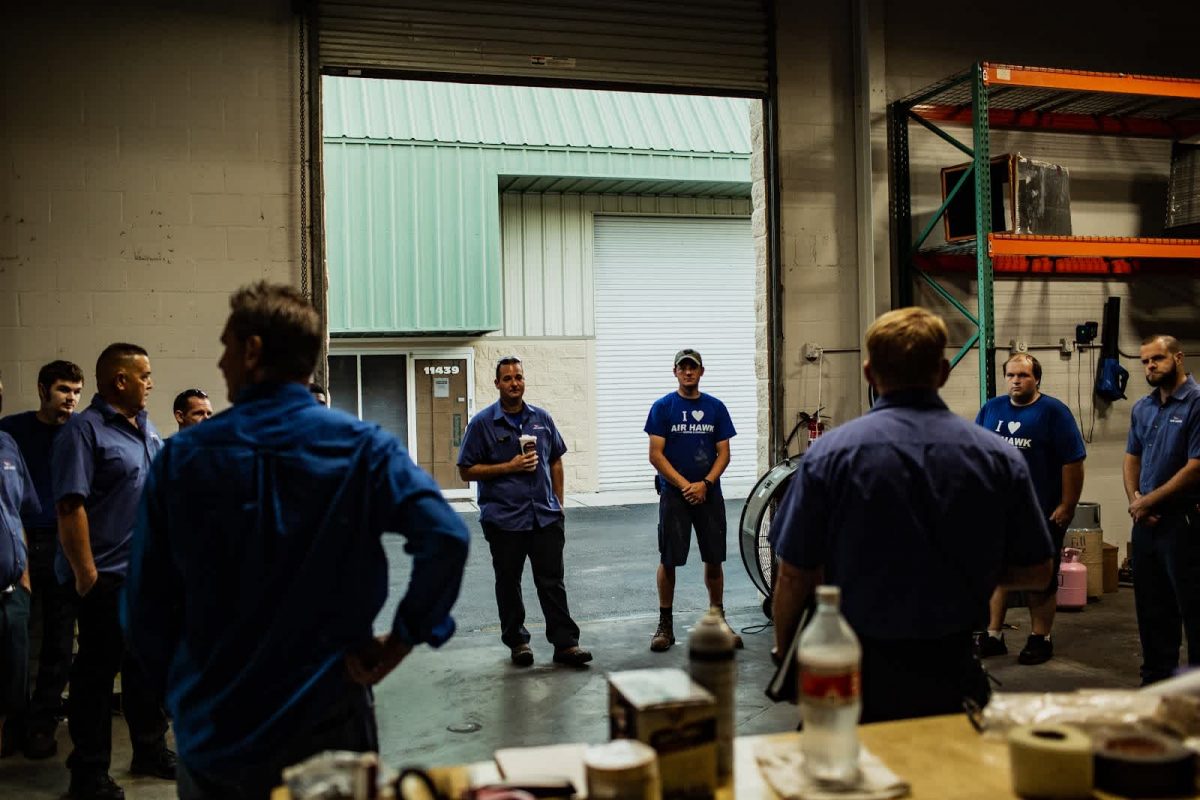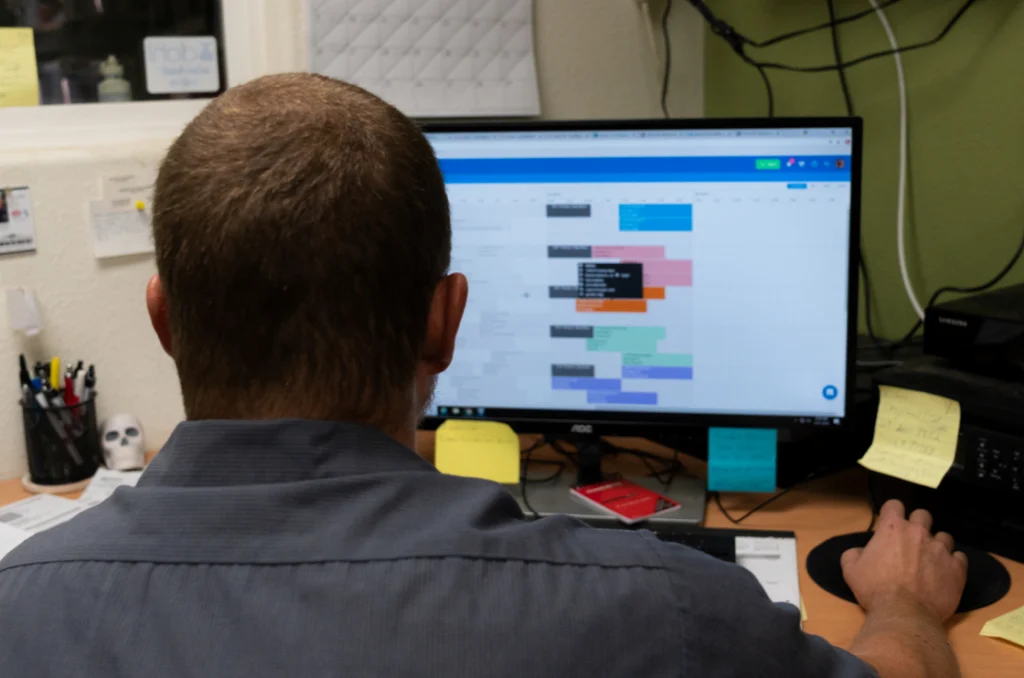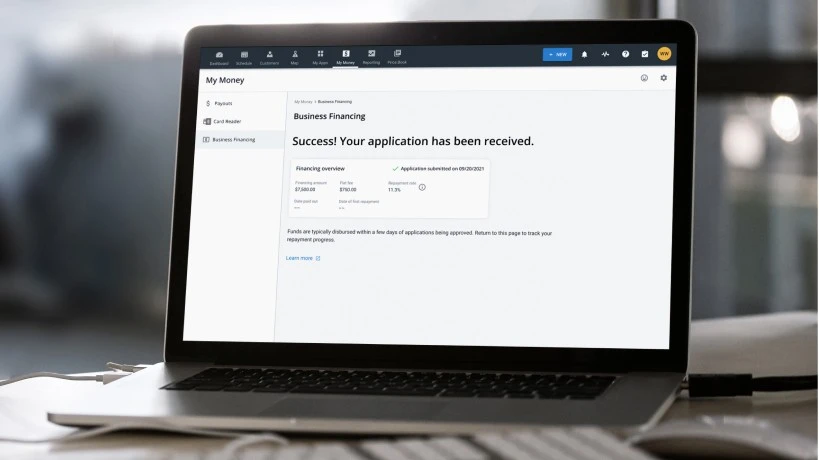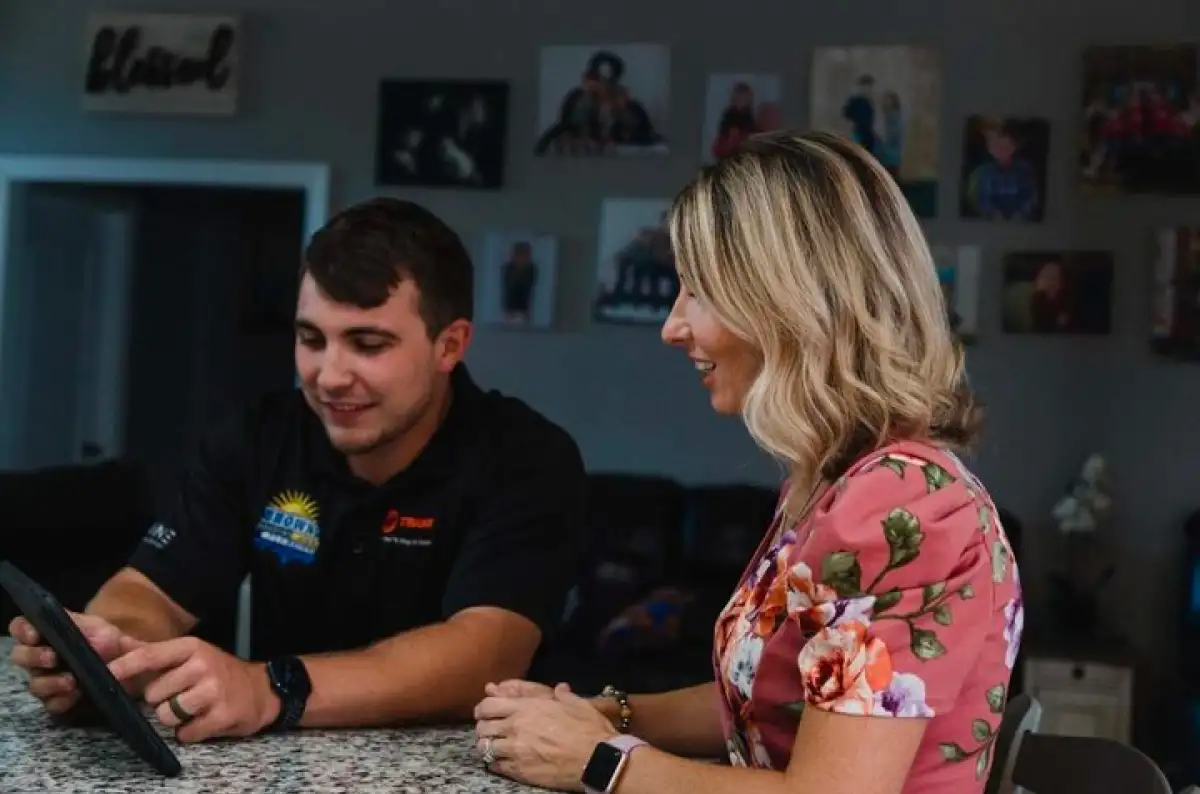
Getting a skilled technician to the customer quickly in order to provide quality service is the heart of any thriving HVAC business. This is where your dispatching and scheduling comes into play.
With a strong approach to dispatching, your HVAC service teams are equipped with the resources and organization needed to get their jobs done effectively. Your customers, in turn, get HVAC systems that are serviced quickly and efficiently.
Reduce stress. Give customers confidence in your service. Provide your service teams with the organization they need to succeed. A finely-tuned scheduling system ensures that your HVAC business will grow and thrive.
Now let’s dive into the key qualities that make great dispatch operations while offering tips you can implement right away to improve dispatching HVAC technicians on service calls.
What makes an HVAC dispatching operation successful
First and foremost, you need a strong dispatcher.
They need to be organized, no-nonsense, and straightforward. A great dispatcher will understand the overall goals and coordinate amongst the technicians to deliver the best service most efficiently across a wide range of client locations and needs.
Give your HVAC dispatcher a leg-up with this free script for HVAC Dispatchers.
Essential qualities of a successful HVAC dispatcher
Maintains the big picture of the business
Sometimes, technicians will want to do things differently.
That’s natural given their significant expertise and the position they are in working with customers every single day. However, a dispatcher with assertive and effective communication skills will be able to confidently direct technicians in a way that works best for the company and its customers overall.
They have the birds’ eye view and should use that to their advantage in every micro-step they take to keep the service team organized and customers happy.
Supports techs to create great customer experiences
The human element is key for dispatchers. A bad dispatch experience can absolutely make or break a technician day. With the technical challenges of the job itself and the need to provide excellent customer service, why pile on the technician’s full plate with needless dispatch-related stress?
A solid dispatcher will be a morale booster for the team. Technicians will sometimes have difficult days. They’ll need someone to vent to and talk through challenges they’re facing. That person will most often be the dispatcher.
A good dispatcher will lift their spirits and help them problem-solve. The dispatcher will need to support their technicians so they can deliver excellent service to every customer, despite the stresses of the job.
Beyond supporting the technicians, dispatchers will need to support customers as well. A top-notch dispatcher will keep customers in the loop by notifying them of any changes that may have occurred with their scheduled service. The best HVAC dispatchers will prep technicians on customer sentiment – many are dealing with non-function air conditioning units during hot months and full-time techs in the HVAC industry should understand how service companies should treat a person in a stressful situation. And it starts with the dispatcher.
At times, your dispatcher is the bridge between your service team and your customers, which makes have a skilled professional in the role absolutely essential.
Organized, great communicators, and experts on key HVAC knowledge
Dispatchers must be natural multi-taskers.
Their ability to organize should be second-to-none. Not only must they keep themselves organized, but they also need to keep the service team on point as well. This level of organization demands a high level of familiarity with the local community and the services offered by your HVAC company.
Talented dispatchers are deft knowledge “jugglers.” In any given moment, they’ll need to deploy the right technician for precision service to a waiting customer. If any of those elements doesn’t land right—the service, the technician, or it takes too long—the customer will take their business elsewhere.
A skilled dispatcher is also a quick learner that is very tech-friendly. As the HVAC continues to be influenced and shaped by new technology, dispatchers will need to adapt to this new tech into their repertoire.
5 HVAC dispatching tips you can use straight away
Despite our love for strong dispatchers, one person can’t solve it all. The context they work in matters, a lot.
Beyond hiring an excellent dispatcher, there are some key items you can tackle to improve your overall operation. Here are a few structural issues you should consider when it comes to dispatching in your HVAC business:
Keep your customer info handy
Dispatchers will need customer information at their fingertips.
Hopefully, you’ve moved past or are in the process of moving past physical filing systems. If you haven’t, it might be one of the reasons your business has plateaued in its growth. A good digital calling system that will unmask the caller before the dispatcher picks up.
With Housecall Pro’s Voice Solutions, not only does the person answering the call know who’s calling, but if the caller is already a customer the Housecall Pro CRM connects the caller to their profile! Know exactly who you’re talking to, what service they’ve recently had, and where they are the moment you pick up.
Make sure dispatchers never have to ask customers for information that you should already have on hand. That’s frustrating for the customer and wastes time. Customers will appreciate that your dispatcher remembers them and is working to tailor your service for their needs.
Proactively organize the day
Some HVAC business calls for emergency (or same-day) service.
You’ve got to figure out a way to “make time” for sudden service calls. These jobs that you book and complete on the same day are very valuable to home service businesses from a financial and customer service perspective.
One way to create space in your daily schedule for these calls: front-load your workday. Schedule non-urgent jobs in the morning, making space in the afternoons for your service team to respond to calls needing urgent support.
You could also keep a technician or two “on-call” if you typically have a high-volume of these calls in your area. If you do this, it’s important to monitor the cost-effectiveness of this move against other scheduling options.
Efficiently group jobs on the schedule
Once you’ve grown your business to a certain point, you can no longer afford to schedule your service team without some forethought. That worked when your business was smaller and you didn’t have enough work to fill each day, but not anymore.
Now you’ll want to assign jobs that are in close proximity to one another to a single technician to reduce travel costs. A dispatcher to do so using GPS tools (like Housecall Pro’s partnership with Force by Mojio) to figure out the most optimal, lowest-cost route. Even better, field service software can help with this if posting dozens of addresses into Google isn’t efficient for your dispatch team.
On rare occasions, it will be more profitable to send a highly-experienced technician that excels in a particular type of work across town to deal with a very specific job. But for the most part, you’ll want to batch appointments by area to keep your service team out of traffic and working with customers (i.e. earning money rather than spending it).
When it comes to expertise, you’ll want your technician to map out where those highly-technical jobs are located and develop the most efficient route for your team to tackle them. If you know about the appointments in advance, this is easier. But the dispatcher should also seek to create the route that optimizes for reducing customer wait times while also keeping travel times low for technicians.
Route profitability is a cause that your dispatchers should lead on at all times.
Manage your business digitally
If you pair a great dispatcher with an excellent HVAC scheduling software, you can win big.
These systems are set up to increase your team’s overall efficiency while increasing value for customers. Here are a few things HVAC software can accomplish for your dispatch operation:
Bring the job to a close
Scheduling a service technician is just the first step. The dispatcher still has more work to do.
They’ll need to ensure the technician has received the work order with the relevant details about the service requested. This can include the model, serial numbers, age of the equipment, and other key details to prepare for the job. The dispatcher should also notify the technician of relevant customer history so they know about past experiences with your company.
On the other side of the job, the dispatcher will need to verify that the service was completed, that the money was collected, and whether a follow-up or ongoing maintenance appointment needs to be scheduled. If the job wasn’t completed, the dispatcher will need to plan accordingly by dispatching another technician with a different skillset or general availability in the near future to complete the job.
Make your dispatching better with Housecall Pro
While hiring a talented dispatcher is important, a strong HVAC dispatch software is essential to getting the job done.
Following the strategies and tactics above to get the right person in the role and provide them with the resources they need to be successful will help your HVAC business grow by providing memorable customer service experiences for your clients.






